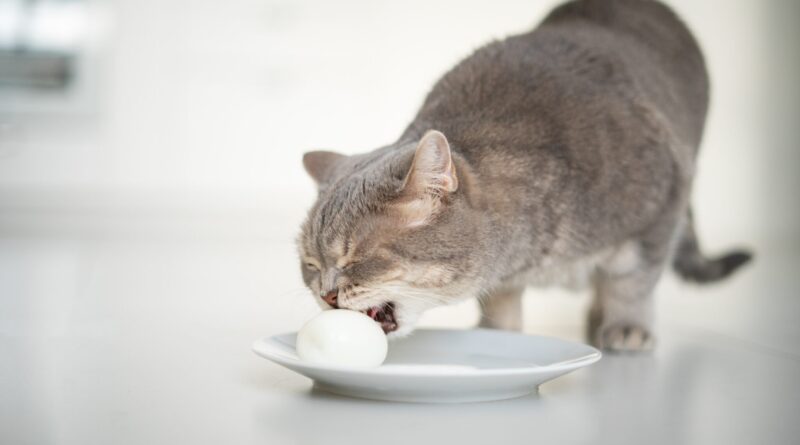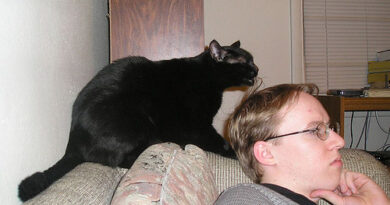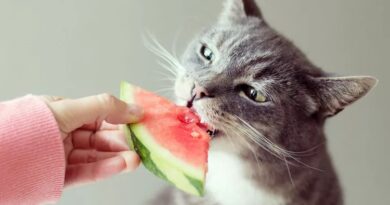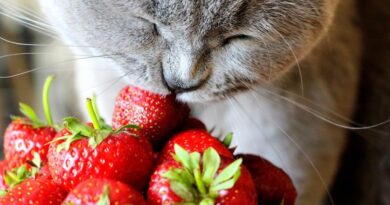Can Cats Eat Eggs? A Complete Guide to Safe and Healthy Feeding
Eggs are a nutritional powerhouse for humans, packed with protein, vitamins, and essential minerals. But when it comes to our feline friends, can cats eat eggs safely? If you’re wondering whether eggs are a healthy treat for your cat or if they should be avoided altogether, this guide will provide you with all the information you need.
Are Eggs Safe for Cats?
The short answer is yes, cats can eat eggs, but with some important caveats. Eggs are rich in nutrients that can benefit your cat when served in moderation and prepared correctly. However, improper preparation or excessive feeding can lead to health issues.
Nutritional Benefits of Eggs for Cats
Eggs are a complete source of protein and offer several nutrients that can contribute to your cat’s overall health:
- Protein: Essential for muscle development and repair, protein is a vital component of a cat’s diet. Eggs provide a high-quality source of this macronutrient.
- Amino Acids: Eggs contain all the essential amino acids that cats need to thrive, making them an excellent supplement to their regular diet.
- Vitamins and Minerals: Eggs are rich in vitamins such as A, D, E, and B-complex, as well as minerals like iron, zinc, and selenium, which support your cat’s immune system and coat health.
- Healthy Fats: The fats in eggs can provide your cat with energy and help maintain a shiny coat.
How to Safely Feed Eggs to Your Cat
While eggs are nutritious, there are precautions you should take to ensure your cat consumes them safely:
1. Cooked Eggs Are Best
Raw eggs can pose health risks for cats, including potential exposure to:
- Salmonella: Raw eggs may contain harmful bacteria, leading to foodborne illnesses.
- Avidin: A protein in raw egg whites can interfere with the absorption of biotin, a B-vitamin essential for healthy skin and fur.
2. Avoid Adding Seasonings
Cats don’t need salt, pepper, or other spices. Always serve plain, cooked eggs to avoid any harmful additives.
3. Portion Control
Even though eggs are healthy, they should only be a small part of your cat’s diet. A bite or two occasionally is enough to provide benefits without causing digestive upset.
Eggs as a Treat vs. Meal Replacement
Eggs should be treated as an occasional snack rather than a regular meal. Cats are obligate carnivores, meaning their primary diet should consist of animal protein, primarily from meat. While eggs provide excellent protein, they lack the complete range of nutrients that cats need daily.
Different Ways to Serve Eggs to Cats
Here are some cat-friendly ways to prepare eggs:
1. Scrambled Eggs
Lightly scrambled eggs without butter, oil, or seasoning are easy for cats to eat and digest.
2. Boiled Eggs
Hard-boiled eggs can be chopped into small, manageable pieces as a simple snack for your cat.
3. Poached Eggs
Softly poached eggs can also be served plain, ensuring no seasoning or oil is used.
Can Kittens Eat Eggs?
Kittens have specific nutritional needs as they grow, and their primary food should be a diet specially formulated for their development. However, you can offer tiny portions of cooked eggs as an occasional treat once they are weaned and eating solid food.
Potential Risks of Feeding Eggs to Cats
Despite their benefits, eggs can pose risks if not handled or served properly:
- Food Allergies Some cats may be allergic to eggs. Symptoms include vomiting, diarrhea, or skin irritation. If you notice any of these signs after feeding eggs, stop immediately and consult your vet.
- Obesity Eggs are calorie-dense. Feeding eggs in large quantities can contribute to weight gain, especially in less active cats.
- Digestive Upset Cats with sensitive stomachs may experience digestive issues if introduced to eggs too quickly.
How Often Can Cats Eat Eggs?
The frequency depends on your cat’s overall diet and health. As a general guideline, you can offer eggs once or twice a week in small portions. Always consult your veterinarian for personalized recommendations.
What About Eggshells?
Eggshells are rich in calcium, which is beneficial for bone health. However, feeding eggshells to your cat requires extra care:
- Crush Them Thoroughly: Eggshells must be finely ground into a powder to prevent choking or digestive issues.
- Serve in Small Quantities: Too much calcium can be harmful, especially for cats with kidney issues.
Signs Your Cat Enjoys Eggs
If your cat shows interest in eggs, watch for positive signs like:
- Increased energy levels
- A shinier coat
- Eagerness during feeding time
Alternatives to Eggs
If your cat doesn’t enjoy eggs or you prefer other treats, consider these healthy alternatives:
- Cooked Chicken or Turkey: These lean meats are excellent protein sources.
- Fish (in Moderation): Cooked salmon or tuna can be a special treat.
- Commercial Cat Treats: Designed specifically for cats, these are balanced and safe options.
FAQs About Cats and Eggs
1. Can Cats Eat Raw Eggs?
No, raw eggs pose risks of salmonella and avidin, which can lead to nutritional deficiencies and illnesses.
2. Can Cats Eat Egg Yolks?
Yes, but in moderation. Egg yolks are rich in fats, which can lead to weight gain if overfed.
3. Can Cats Eat Egg Whites?
Yes, cooked egg whites are a low-fat source of protein. Avoid feeding raw whites due to avidin.
4. What Should I Do if My Cat Eats a Raw Egg?
Monitor your cat for symptoms like vomiting, diarrhea, or lethargy. If symptoms appear, contact your vet.
5. Are Eggs Suitable for Senior Cats?
Yes, eggs can benefit senior cats by providing easily digestible protein, but consult your vet to adjust portions based on your cat’s health.
Conclusion
Eggs can be a nutritious and tasty treat for cats when served properly. Remember to cook them thoroughly, avoid seasoning, and feed in moderation. While eggs can enhance your cat’s diet, they should never replace a balanced cat food designed to meet their nutritional needs.
When in doubt, always consult your veterinarian to determine the best dietary choices for your feline friend. By offering eggs safely and responsibly, you can give your cat a delicious treat that supports their health and happiness




